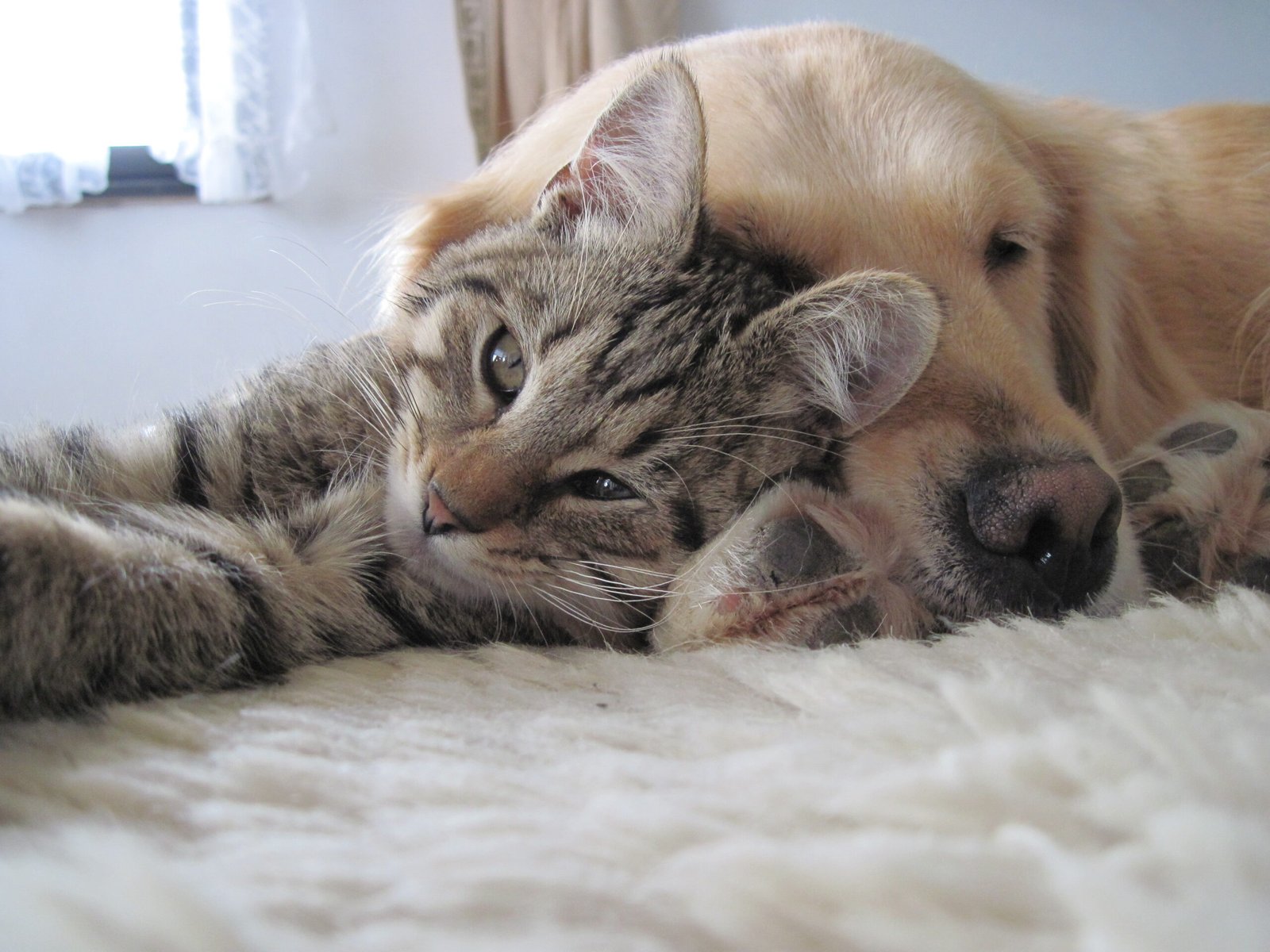Have you ever watched your dog and cat size each other up like two dueling cowboys in a spaghetti western? The tension, the curiosity, maybe even a dash of chaos? It’s no secret—the world of cats and dogs is full of surprises and sometimes, spectacular fails. If you’re a dog lover with a soft spot for felines, you know the dream: two furry friends curled up together, not plotting each other’s demise. But let’s be honest, some dog breeds just can’t help but chase, bark, or stress out their feline housemates. On the flip side, there are breeds that’ll shock you with their gentle, cat-approved attitudes. Ready to discover which dogs are a cat’s worst nightmare—and which ones might just become their best friend? Let’s dive in.
Jack Russell Terrier: A Tiny Tornado Too Wild For Cats
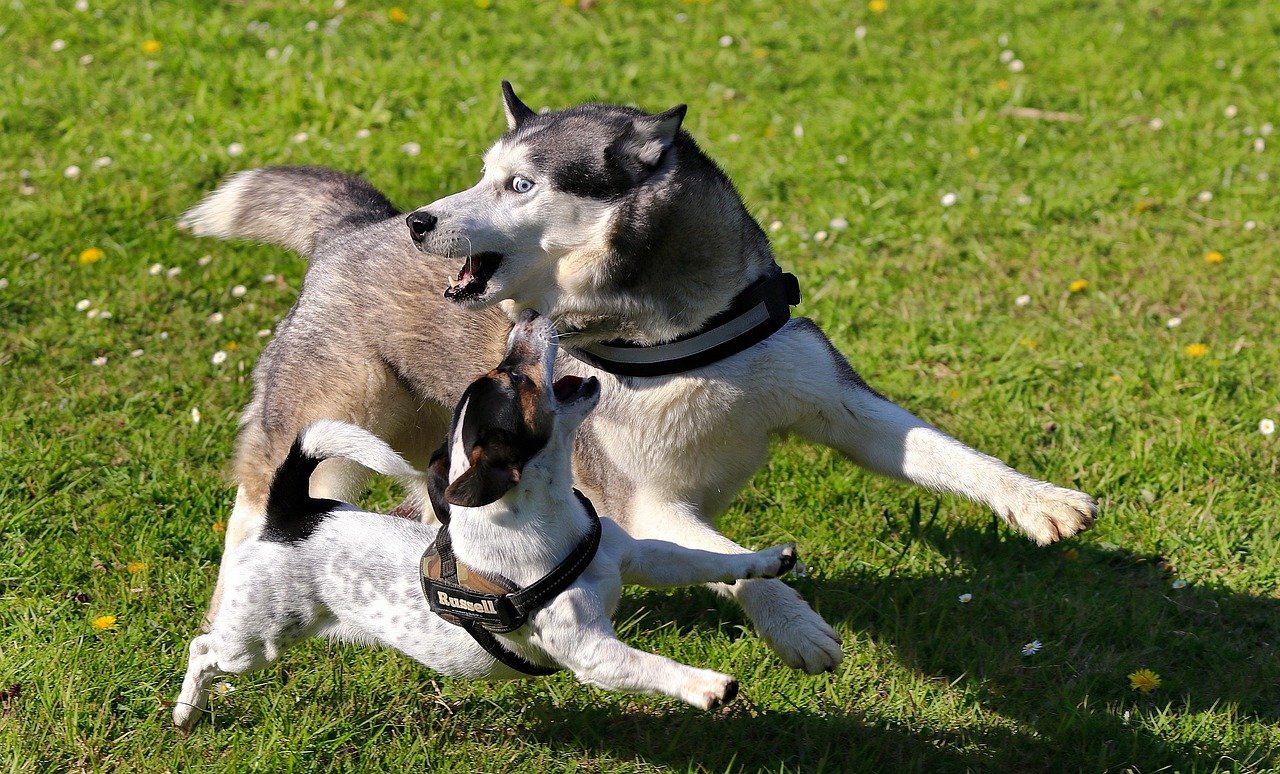
Don’t let their small size fool you—Jack Russell Terriers are absolute dynamos with energy to burn and instincts to chase anything that moves. These pups were bred for hunting, so their prey drive is sky-high. If a cat darts by, a Jack Russell is likely to give chase, turning your living room into a scene straight out of a cartoon. Even the sweetest Jack Russell might struggle to resist that urge to pounce or bark relentlessly at a new feline roommate. For households with timid or elderly cats, bringing in a Jack Russell could mean constant stress and zero peace. They need lots of mental stimulation, and unfortunately, a cat might just become their favorite “toy”—not exactly ideal for peaceful cohabitation.
Greyhound: Speed Demons With a Prey Drive

Greyhounds are famous for their lightning-fast sprints, but there’s a reason for that: they were bred to chase small animals. That includes, you guessed it, cats. While some Greyhounds can learn to get along with cats, especially if introduced young, many still see felines as something to pursue. Their sheer speed means that even a quick cat might not stand a chance if a Greyhound gets the urge to give chase. It’s not that Greyhounds are aggressive, but their instincts can be tough to override. For peace of mind, many shelters test retired racing Greyhounds with cats before adoption, but it’s always a gamble.
Weimaraner: The Stubborn Hunter
Weimaraners look elegant, but beneath that sleek exterior is a breed born to hunt. Their ancestors chased game through forests and fields, and those instincts haven’t gone away. Weimaraners are notorious for being stubborn and single-minded—once they spot a cat, they might focus obsessively on chasing or cornering it. Even with training, these dogs can be high-strung around small animals. For them, a cat is a moving target, not a potential nap buddy. If you love both breeds, just be ready for a lot of management and supervision.
Siberian Husky: The Wild-Hearted Adventurer
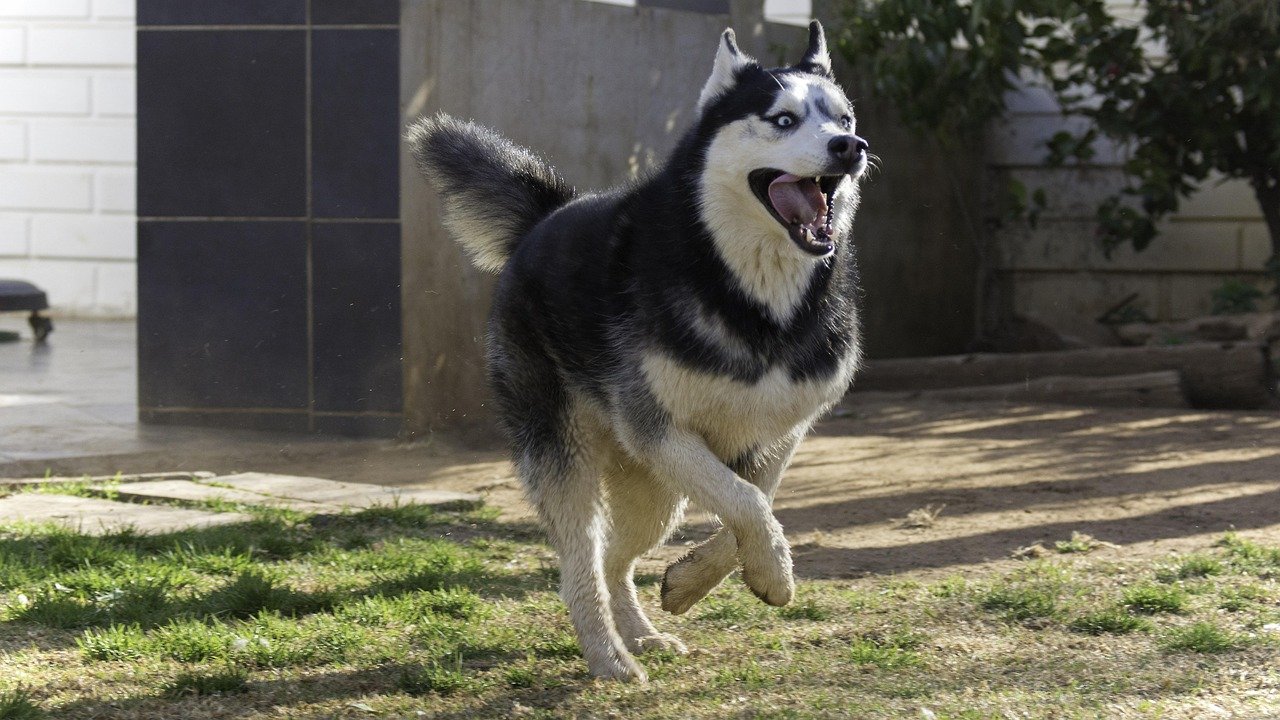
Siberian Huskies are beautiful, strong, and wildly independent. But they also have an incredibly high prey drive. In the snowy lands where they were first bred, Huskies had to hunt for survival, and that instinct is still strong. Cats can trigger their chase response—sometimes with disastrous results. Many Husky owners report that their dogs just can’t be trusted around cats, no matter how much socialization they receive. If you want a peaceful household, combining a Husky with a cat is often a recipe for stress and drama.
Fox Terrier: The Persistent Pursuer
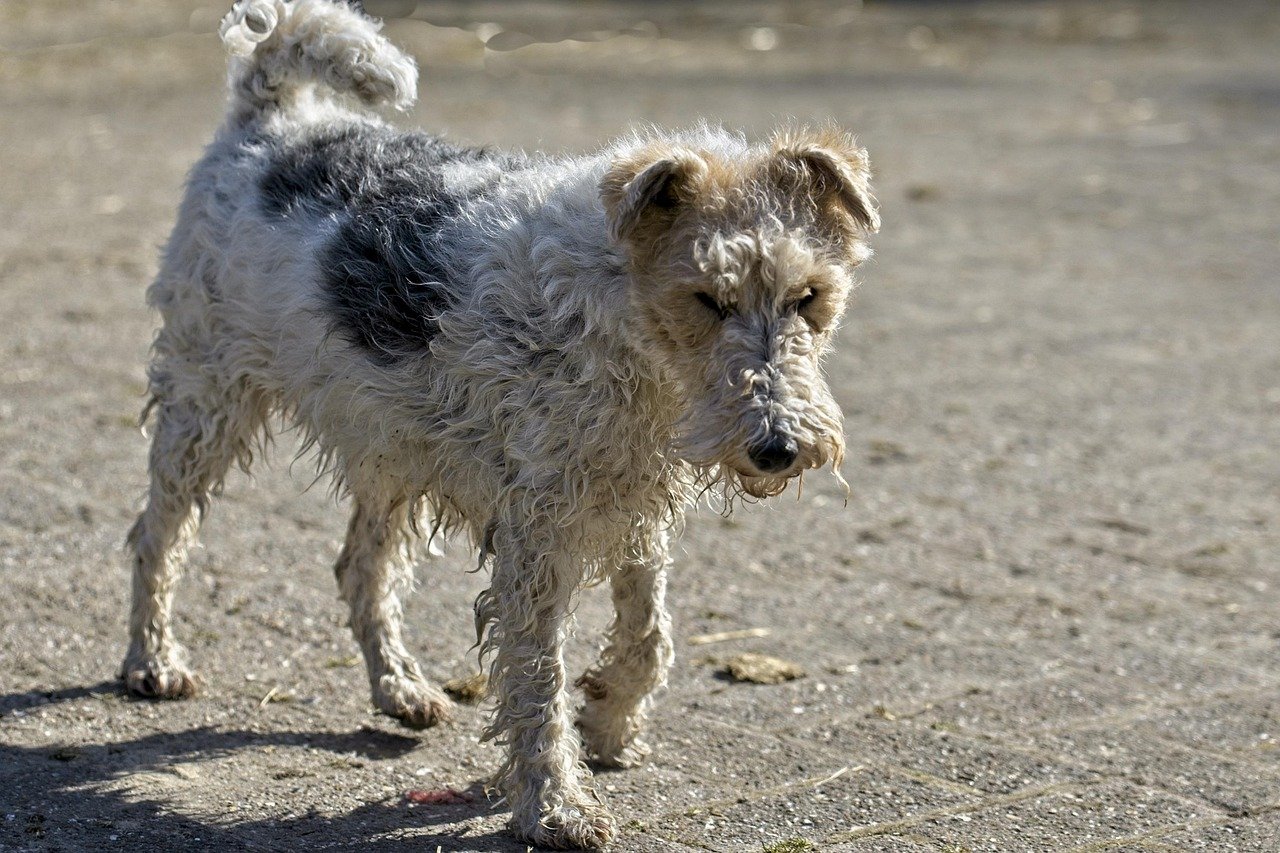
Fox Terriers are alert, energetic, and relentless. These little dogs were created to chase foxes from their dens, and that single-mindedness hasn’t faded. When there’s a cat in the house, a Fox Terrier may see it as something to be “flushed out” or cornered. Their determination can make it hard for a cat to ever relax, and their barking at feline intruders can wear down even the most patient of owners. In many homes, Fox Terriers and cats end up in a constant battle of nerves.
Afghan Hound: Beauty With a Built-In Chase Mode
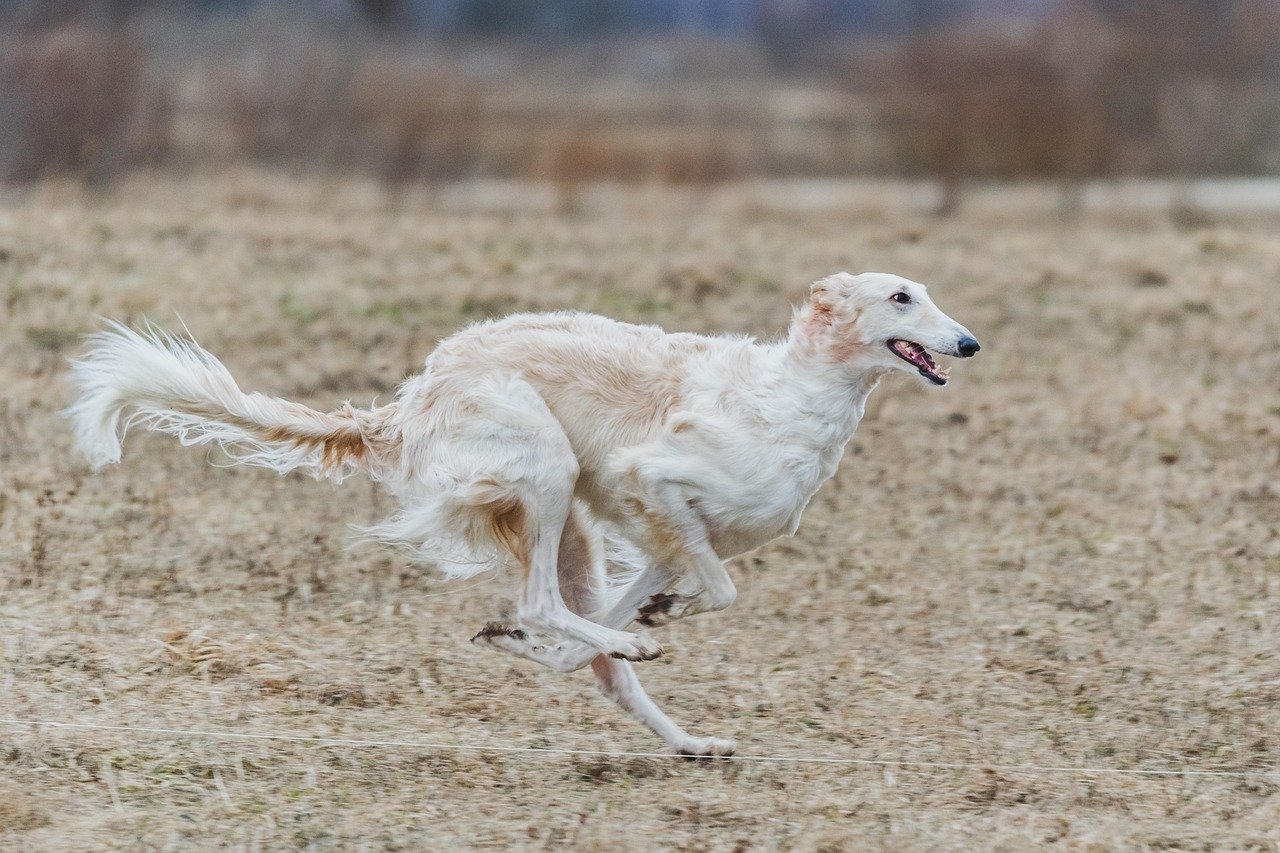
There’s something almost regal about the Afghan Hound, with its flowing locks and elegant stance. But don’t be fooled—these dogs are sighthounds, bred for hunting game by sight. Anything that runs, including your beloved kitty, can activate their chase instinct. Afghans can be aloof and independent, which makes it difficult to train them out of their natural tendencies. If you have a cat that loves to bolt around the house, an Afghan Hound might turn playtime into a high-speed pursuit.
Alaskan Malamute: The Pack Predator
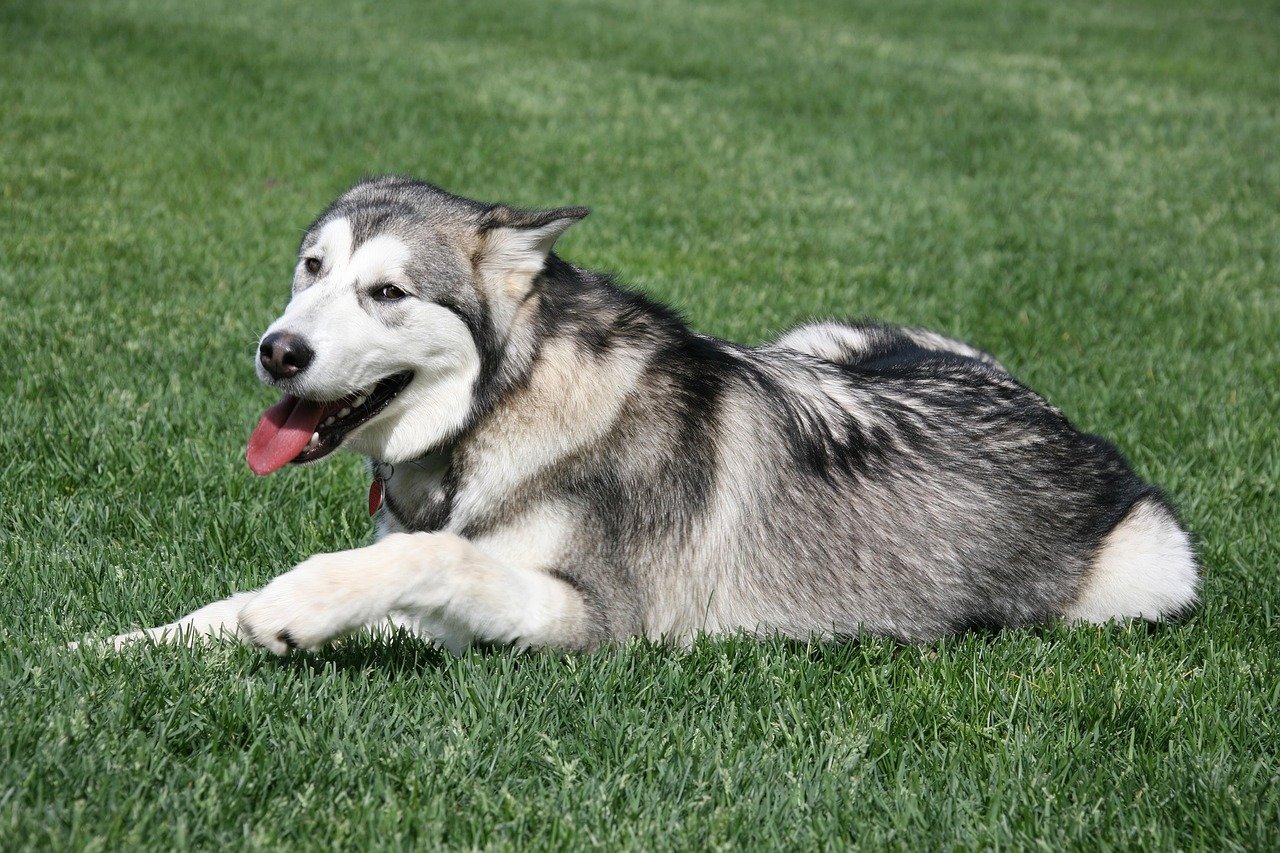
Alaskan Malamutes are strong, intelligent, and bred for hard work in harsh conditions. They also have a well-documented prey drive. Malamutes often see smaller animals as something to chase or dominate, and their size means they can unintentionally hurt a fragile cat. Even with early socialization, some Malamutes never quite lose their urge to pursue smaller creatures. If your cat is timid or elderly, a Malamute’s boisterous approach might be too much to handle.
Basenji: The Cat-Like Dog With a Twist
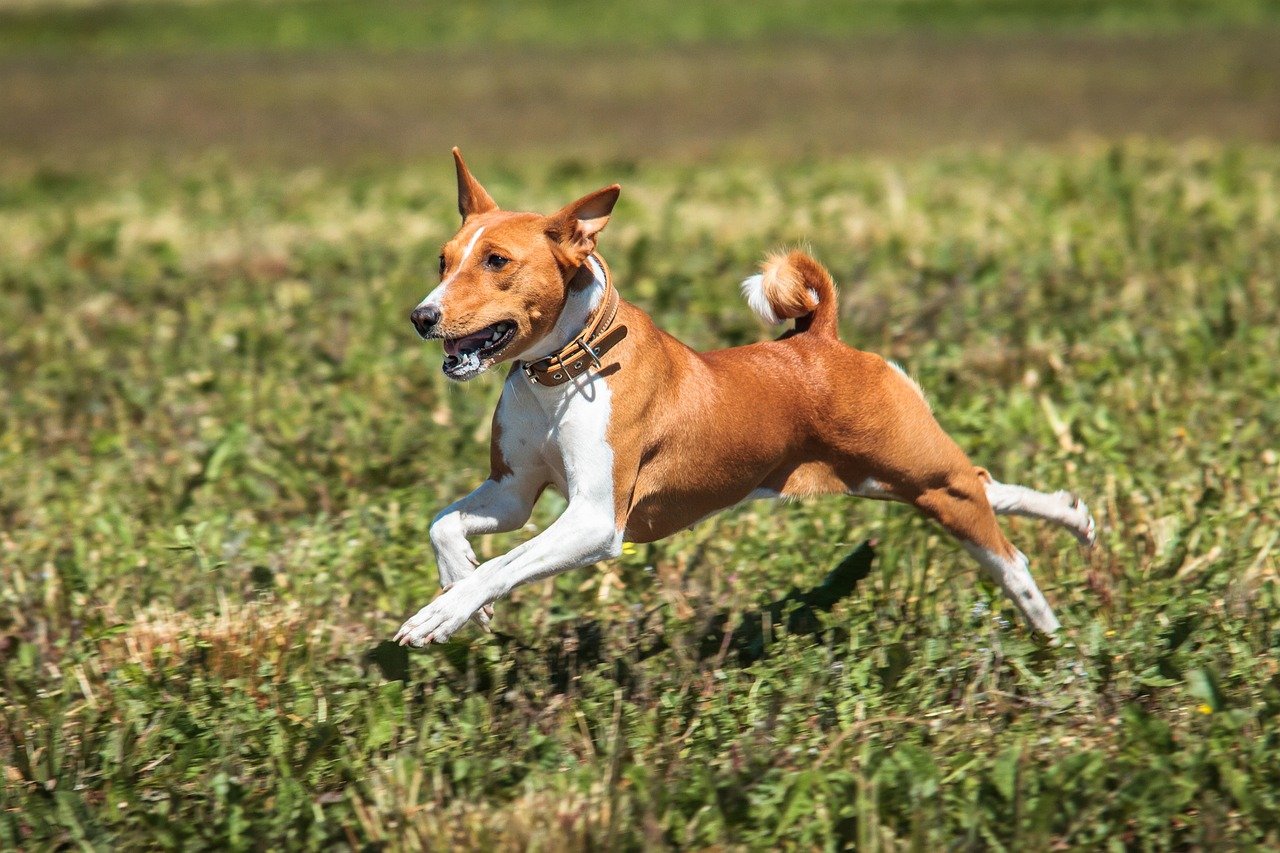
Ironically, Basenjis are often described as “cat-like”—they’re independent, curious, and agile. But unlike cats, Basenjis have a prey drive that can make them terrible roommates for actual felines. These dogs are hunters at heart, and their quiet, stealthy movements can be unsettling for a cat. Sometimes, Basenjis and cats can live together, but it usually takes a lot of work and patience. Left alone, a Basenji might stalk or harass a cat, making it tough for everyone to relax.
Whippet: The Surprising Speedster
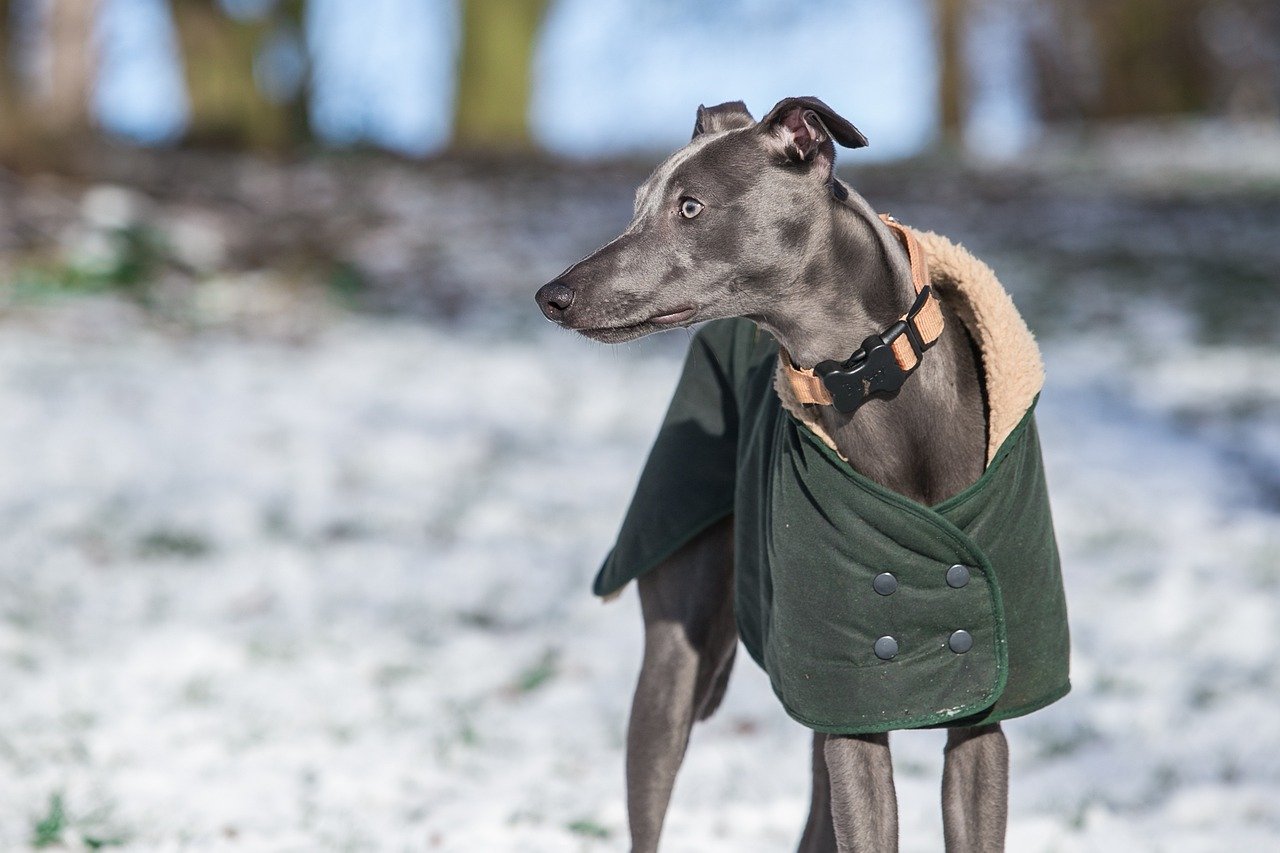
Whippets are gentle souls with a need for speed. Like their cousins, the Greyhounds, they’re sighthounds bred to chase fast-moving prey. Even the calmest Whippet can surprise you with a sudden burst of energy—and if a cat runs, the chase is on. Whippets can sometimes be socialized to live with cats, but there’s always a risk that their instincts will take over. For cat owners, it’s a bit like living with a loaded spring that could go off at any moment.
Australian Cattle Dog: The Herding Hurricane
Australian Cattle Dogs are whip-smart and bred for herding. While that might sound harmless, their herding instincts often include nipping and chasing anything that moves. That means a cat can quickly become a target for endless attempts at “herding,” which usually translates to stress and frustration for both animals. These dogs are relentless in their pursuit, making it tough for cats to feel safe or settled. Even with good training, that hard-wired instinct can be a challenge to overcome.
Golden Retriever: The Gentle Giant of Cat Friendships
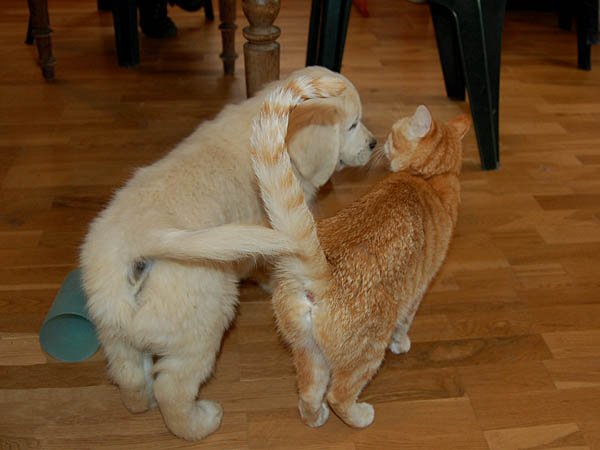
Golden Retrievers are famous for their sweet, even-tempered nature. They’re often called the “ultimate family dog,” and for good reason. Many Golden Retrievers are patient, tolerant, and gentle—even with cats. Their eagerness to please means they’re likely to accept a feline housemate as part of the family, especially if introduced at a young age. Goldens are rarely aggressive, and most are content to let a cat set the pace of the relationship. If you want a safe bet for dog-cat harmony, a Golden Retriever is near the top of the list.
Labrador Retriever: Playful, Patient, and Cat-Approved
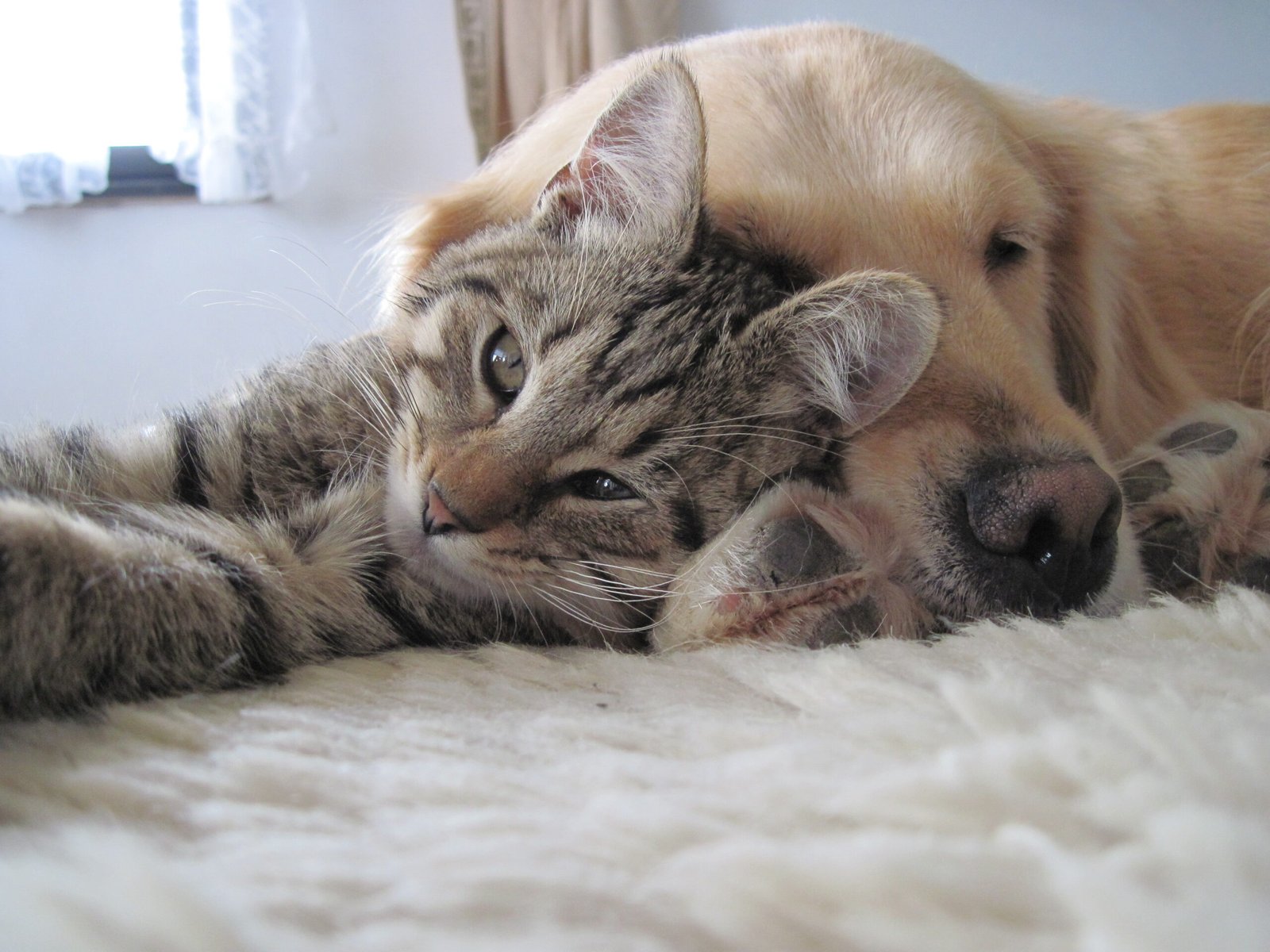
Labrador Retrievers are the epitome of friendly. Labs are playful, adaptable, and have a famously easy-going attitude. They usually treat cats with the same goofy affection they give everyone else—sometimes a little too enthusiastically, but rarely with malice. Labs can be a bit clumsy, so supervision during early introductions is key, but most cats learn to tolerate, or even love, their canine companions. A Lab’s patience and cheerful nature make them a fantastic choice for multi-pet households.
Beagle: The Curious Investigator
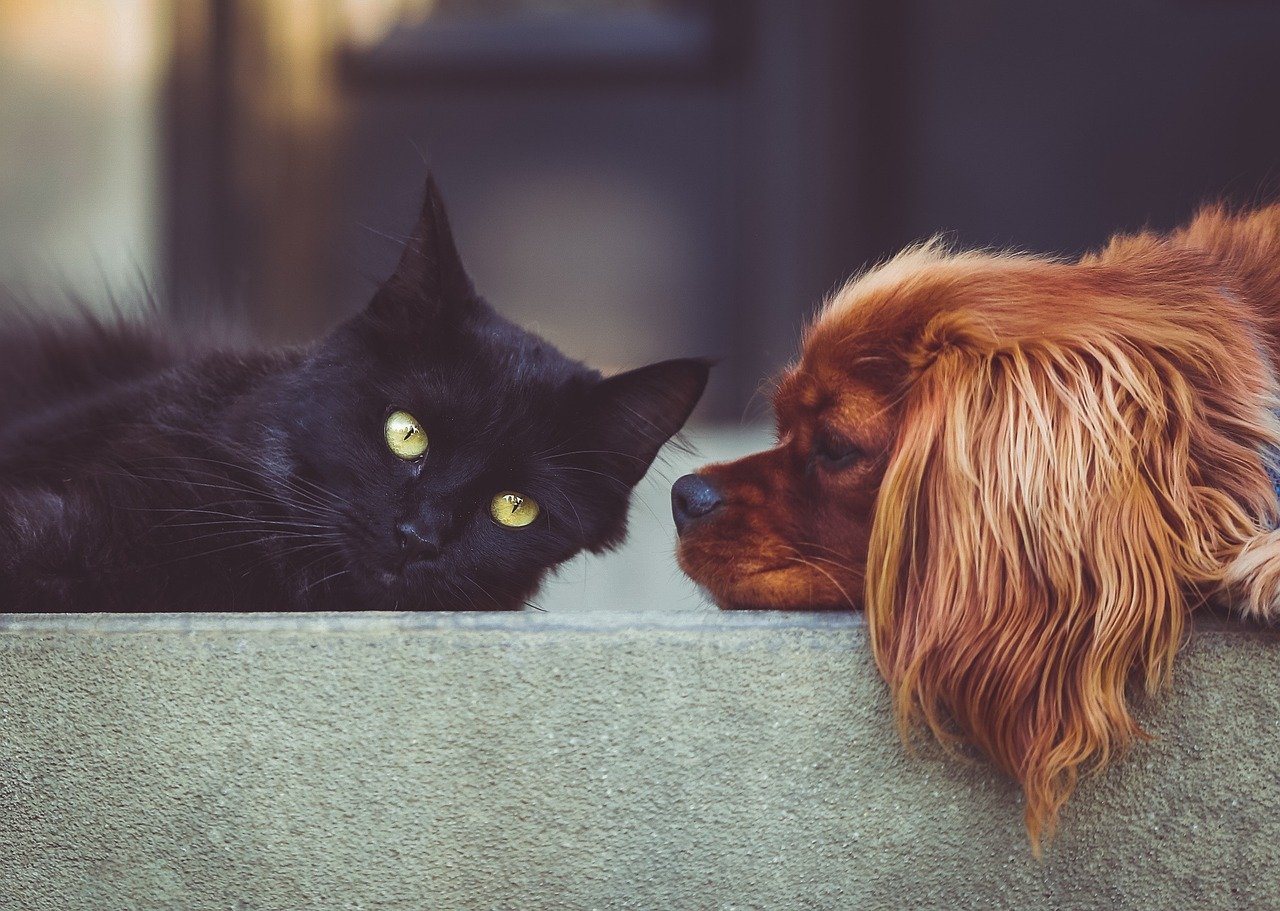
Beagles are nose-driven and endlessly curious, but they’re also gentle and social. While they were bred to hunt, Beagles don’t usually have the same intense prey drive as sighthounds or terriers. They’re more likely to want to sniff and investigate a cat than chase it down. With proper introductions, Beagles often end up following their feline friends around, hoping for a shared adventure or a snack. Their mild-mannered approach and small size can help cats feel comfortable.
Pug: The Comedian Who Loves Everyone
Pugs are the clowns of the dog world. They’re affectionate, playful, and pretty much love everyone, cats included. With their laid-back attitude and small stature, Pugs are unlikely to intimidate a cat. They’re content to nap, play, or cuddle—sometimes all at once. Cats often find Pugs easy to tolerate, and some even become inseparable nap buddies. A Pug’s good-natured personality helps smooth out any initial awkwardness between species.
Basset Hound: The Laid-Back Lounger
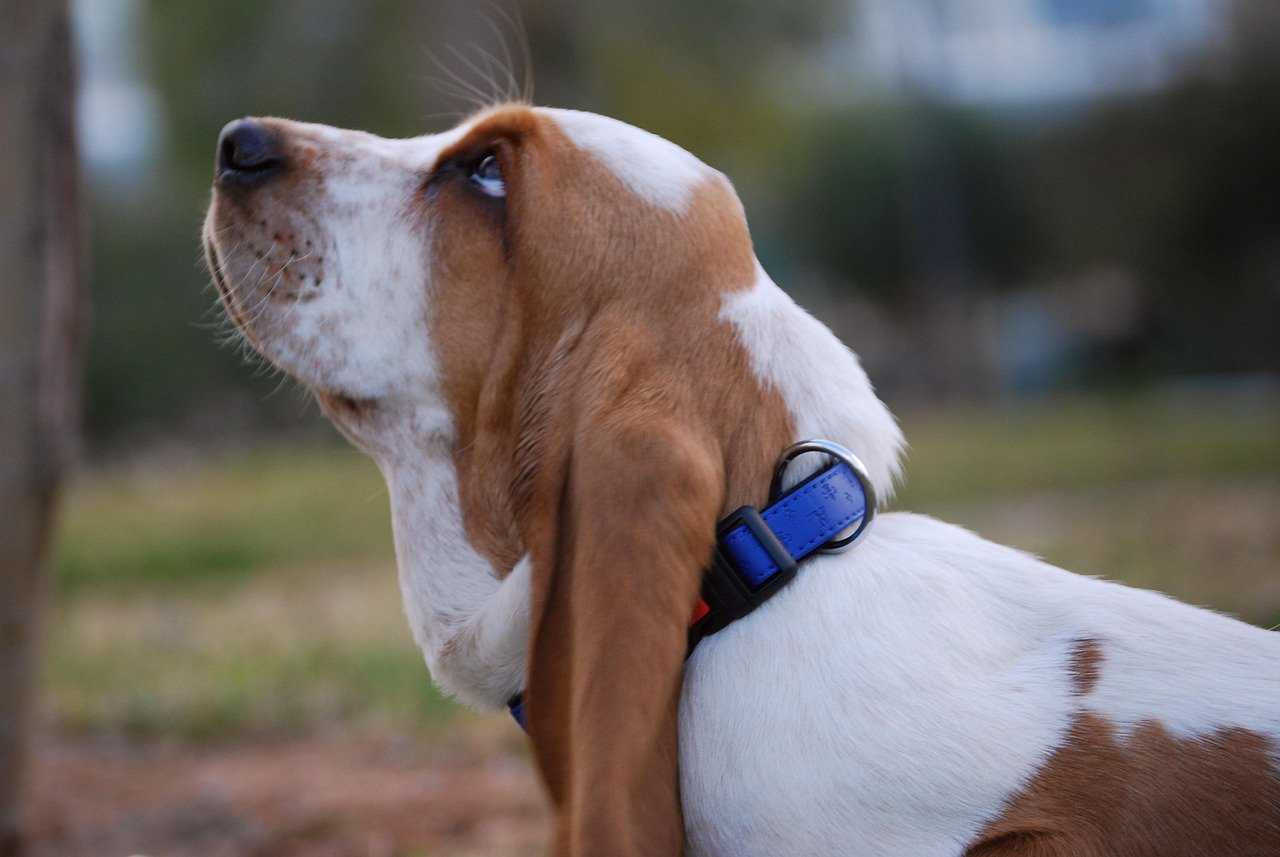
Basset Hounds are as mellow as they come. These droopy-eared dogs are more interested in lounging than chasing. Their slow, deliberate movements mean cats rarely feel threatened, and Bassets tend to ignore most feline antics. If you want a dog that’s unlikely to bother your cat, a Basset Hound is a solid choice. They may not become best friends, but they’ll coexist peacefully, often sharing a sunny spot for napping.
Newfoundland: The Gentle Giant
Newfoundlands are massive, but don’t let their size fool you—they’re true gentle giants. These dogs are calm, patient, and famously tolerant. Most Newfoundlands see cats as just another member of the household, not as prey or playthings. Their easy-going nature makes them excellent companions for families with multiple pets. Even the boldest cat is unlikely to be fazed by a Newfoundland’s relaxed demeanor.
Collie: The Sensitive Companion
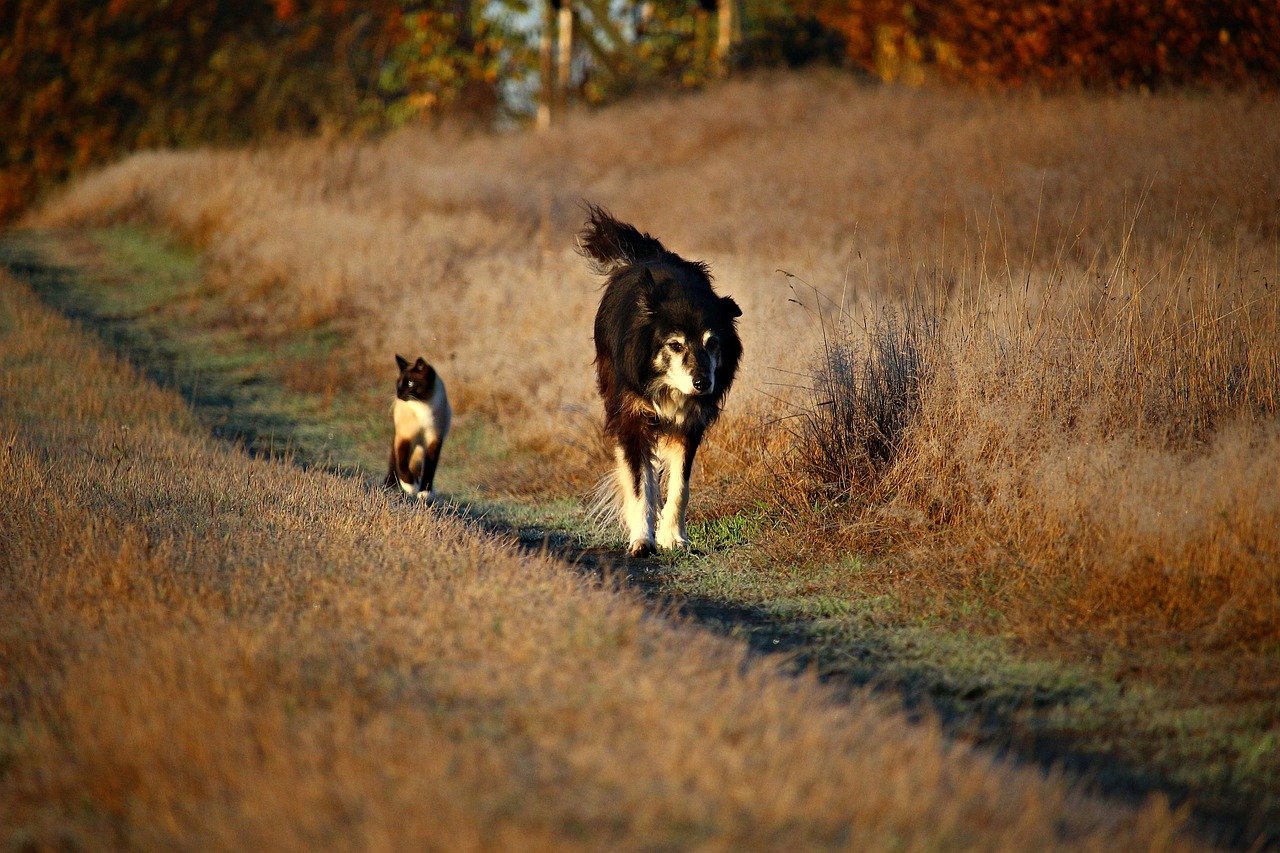
Collies are intelligent, sensitive, and deeply loyal. With their strong desire to please, Collies often adapt well to sharing a home with cats. They can be protective without being overbearing, and most are gentle enough to respect feline boundaries. With early socialization, Collies are known to form close bonds with cats, sometimes even taking on a nurturing role. Their calm energy and empathy make them a surprisingly good match for cats.
Cavalier King Charles Spaniel: The Sweetheart of the Dog World
These little dogs are pure sweetness in a silky package. Cavalier King Charles Spaniels are affectionate, adaptable, and get along with almost everyone—including cats. They rarely show aggression and are usually more interested in companionship than conflict. Their playful yet gentle nature helps put cats at ease, and many end up snuggling together. If you want a loving, low-drama dog, this breed is hard to beat.
Boxer: The Playful Protector
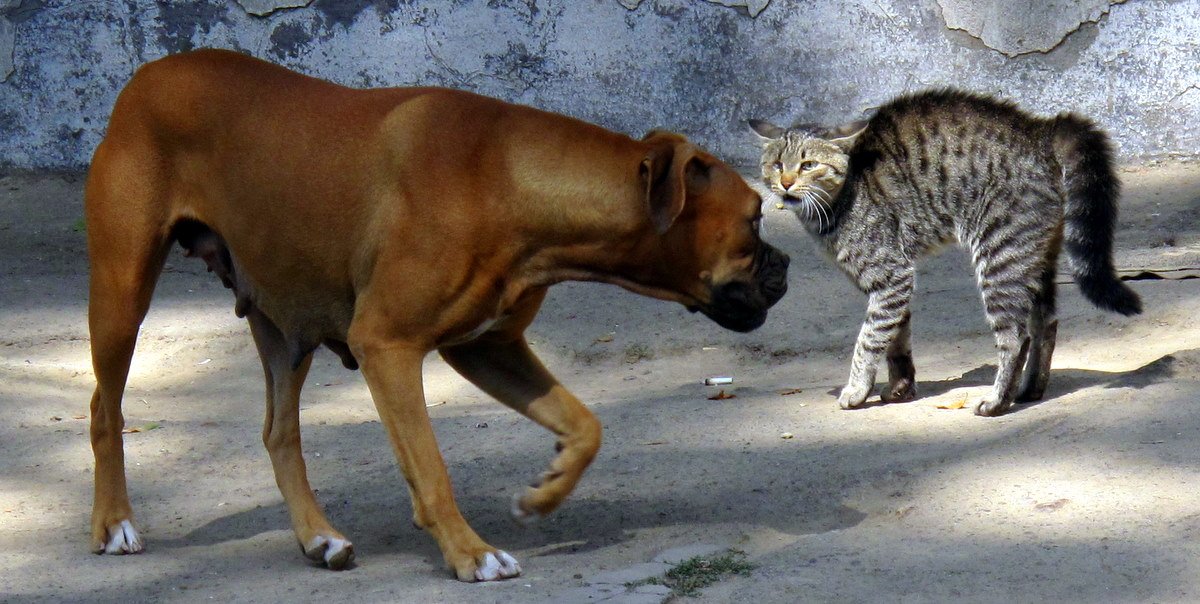
Boxers are energetic, friendly, and fiercely loyal to their families. While their exuberance can be overwhelming at first, Boxers are rarely aggressive toward cats. With proper introductions and supervision, many Boxers end up forming playful, protective bonds with their feline siblings. Their goofy sense of fun and strong desire to be part of the family means they’re often more interested in making friends than chasing.
Shih Tzu: Small, Sweet, and Surprisingly Cat-Friendly
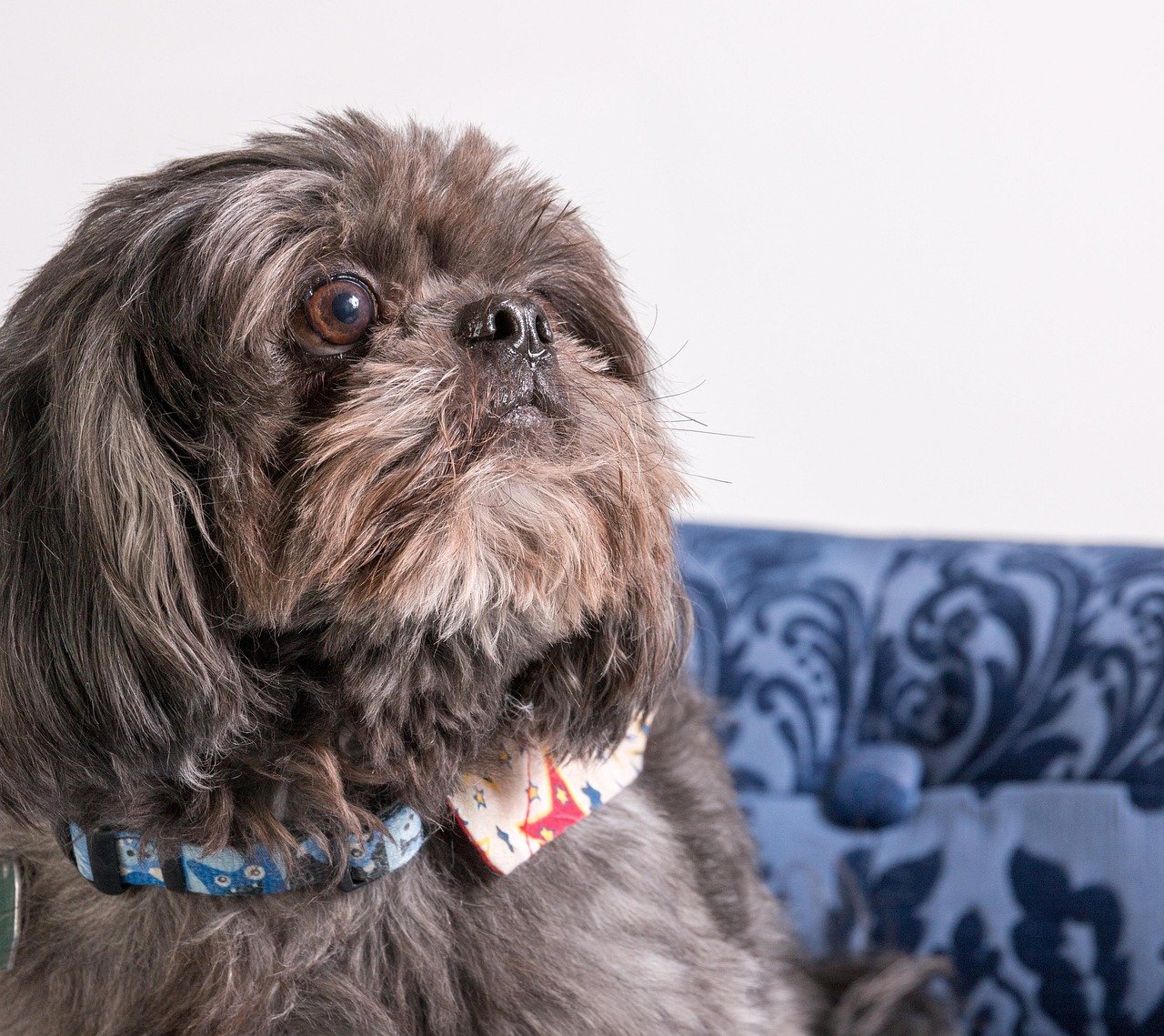
Shih Tzus may look dainty, but they have big personalities and gentle hearts. These little dogs were bred to be companions, and they take that role seriously—often extending their affections to family cats. Shih Tzus are unlikely to chase or intimidate felines, and their calm demeanor makes them ideal for peaceful cohabitation. Many cats find Shih Tzus easy to accept, especially when introduced slowly and thoughtfully.
Standard Poodle: The Smart, Adaptable Friend
Standard Poodles are known for their intelligence and adaptability. They’re quick learners and usually eager to please, which helps them adjust to life with cats. Poodles aren’t typically driven by a strong prey instinct, so they’re less likely to chase or harass feline housemates. With their gentle, playful nature, many Standard Poodles end up forming close, respectful relationships with cats. Their ability to read a room—and a cat’s mood—makes them one of the most versatile dog breeds for multi-pet homes.

